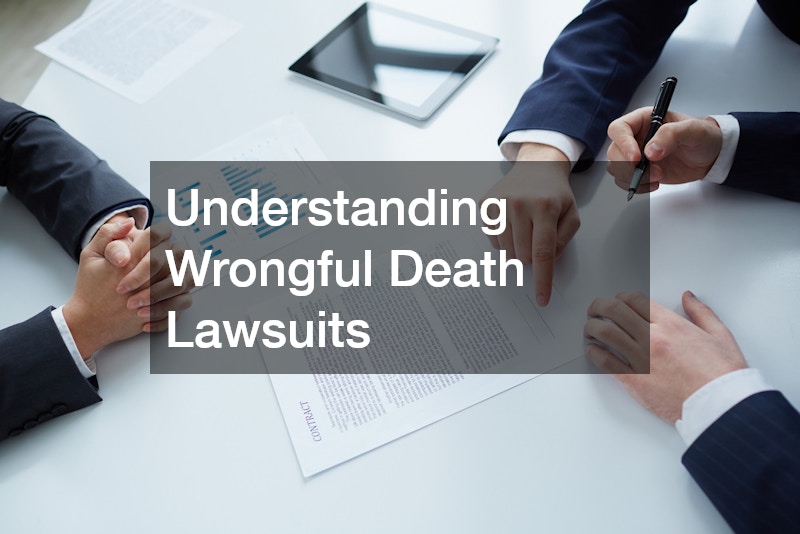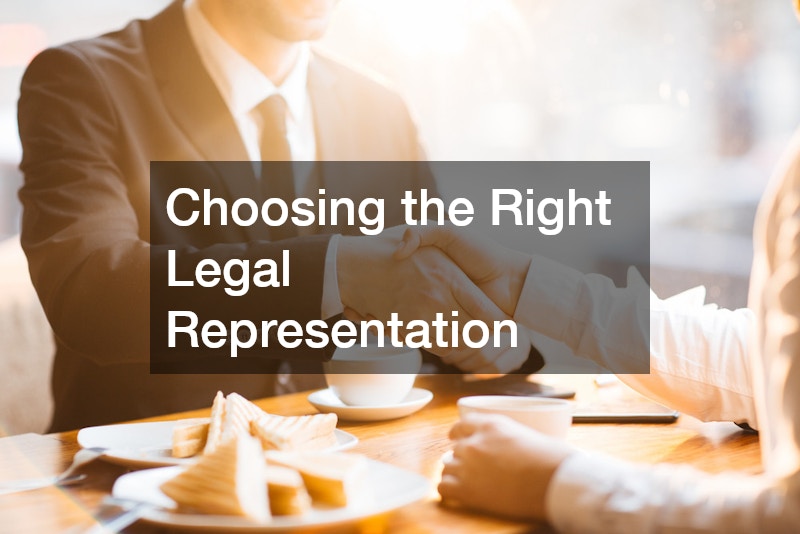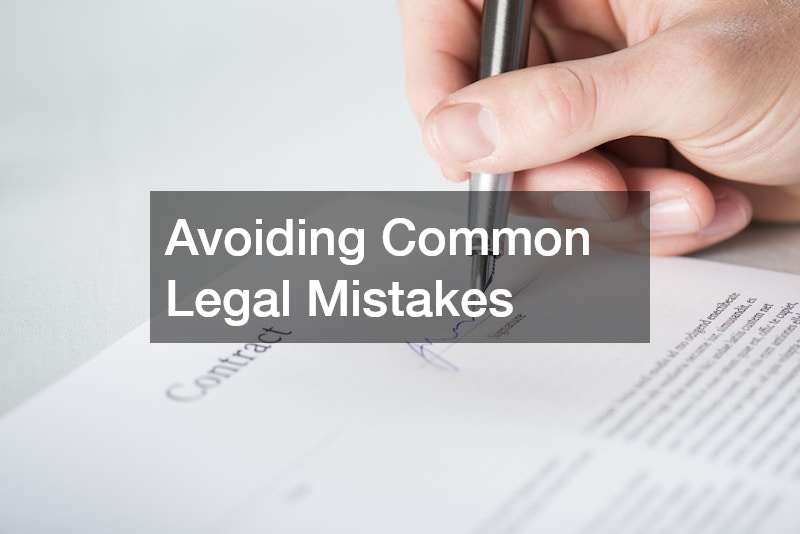Losing a loved one is devastating under any circumstances, but when that loss is due to someone else’s negligence or misconduct, the pain is often accompanied by confusion, anger, and a deep sense of injustice. Families navigating the aftermath of a wrongful death are suddenly thrust into a complex legal world while still grieving. It’s not just about seeking financial compensation—it’s about holding responsible parties accountable, finding answers, and trying to bring some sense of closure to a traumatic event.
Pursuing a wrongful death lawsuit can feel overwhelming, especially if you’re unfamiliar with legal procedures and terminology. The process involves strict timelines, extensive documentation, and often emotionally charged investigations. This guide breaks down what families need to understand when considering this legal route. From identifying who is eligible to file a claim to understanding the types of evidence that strengthen a case, we’ll walk you through the essential steps and considerations that can help you move forward with confidence.
Understanding Wrongful Death Lawsuits

A wrongful death lawsuit is a legal action brought by surviving family members or representatives against a party whose negligent or intentional act caused a person’s death. These lawsuits serve not only to compensate the family for their loss but also to act as a deterrent against future misconduct. They differ from criminal cases, which are pursued by the state and focus on punishing the wrongdoer. In contrast, civil wrongful death claims focus on providing relief to the affected family and often hinge on proving that the death could have been prevented if not for the defendant’s actions or inaction.
Because the lines between criminal charges and civil claims can sometimes blur, it’s common for families to consult with a criminal attorney when exploring whether a civil case is also appropriate. These professionals can explain the distinctions between a criminal prosecution and a wrongful death lawsuit, and how one may impact the other. In some cases, even if a criminal court doesn’t find someone guilty, a civil court might still hold them liable. Understanding these dynamics early on helps families make informed choices about pursuing justice in both arenas.
Knowing Who Can File a Claim
Not everyone is legally permitted to file a wrongful death lawsuit, and understanding who qualifies is one of the first steps in starting the process. Generally, the right to file is given to immediate family members such as spouses, children, or parents of unmarried children. In some states, extended relatives or financial dependents may also have standing. The laws vary widely by jurisdiction, so determining eligibility requires a close look at local statutes and legal precedent.
A common scenario involves an unexpected death in an emergency room, where decisions must be made quickly and the line between unavoidable tragedy and negligence may not be clear. If a loved one dies in such a setting, the family must not only establish a connection to the deceased but also prove that the healthcare provider’s actions were directly responsible. The process begins with identifying the appropriate party to file the claim and ensuring they have the legal right to do so, which is essential before any proceedings related to a death lawsuit can move forward.
Identifying Common Causes of Wrongful Death
Wrongful death can result from a wide variety of circumstances, but certain causes appear more frequently in legal claims. These include medical malpractice, vehicle accidents, workplace incidents, defective products, and unsafe premises. Each type of case involves its own standards of evidence and legal criteria, but the central element remains the same: the death must have been caused by negligence or wrongful action. Recognizing these patterns can help families determine whether their loved one’s passing warrants further investigation.
One increasingly common area of concern is the care provided in a senior living facility. Elderly residents are among the most vulnerable, and a lapse in supervision, medication errors, or unsanitary conditions can quickly lead to life-threatening consequences. When a loved one passes away in such a facility, it’s important to consider whether their death was preventable and whether neglect played a role. These environments are heavily regulated, and a thorough review of the circumstances can often uncover signs of wrongdoing that justify filing a wrongful death lawsuit.
Gathering Key Evidence for the Case

Solid evidence is the foundation of any successful wrongful death lawsuit. This includes medical records, accident reports, witness testimonies, video footage, and expert evaluations. The more detailed and specific the documentation, the stronger the case. Gathering this information can be emotionally taxing, but it is crucial for demonstrating how the defendant’s actions directly led to the loss of life. Timing is also critical—evidence can be lost or degraded quickly, so acting promptly increases the chances of a favorable outcome.
A unique challenge arises when the deceased has already been transferred to a cremation service, which can limit opportunities for an autopsy or further medical examination. In these cases, it becomes even more important to collect all available records and statements leading up to the death. Families should request full reports from attending physicians and staff, especially when the cause of death is unclear or disputed. Without a physical body to examine, a wrongful death lawsuit must rely heavily on documentation and testimony to prove negligence.
Meeting Legal Deadlines and Requirements
Every state imposes deadlines—known as statutes of limitations—for filing a wrongful death claim. Missing these deadlines, even by a day, can permanently bar a family from pursuing justice. In addition to filing deadlines, there are also procedural requirements, such as formally appointing a personal representative of the estate, submitting evidence in a timely manner, and notifying all relevant parties. Failure to follow these steps can delay or even dismiss a case, regardless of its merit.
A critical part of this process is conducting thorough medical record reviews, especially when a death occurs under questionable medical circumstances. These reviews help identify discrepancies in care, overlooked symptoms, or improper treatments that may have contributed to the fatal outcome. Legal teams often rely on expert reviewers to interpret these records and build a compelling timeline of events. Without this detailed analysis, a wrongful death lawsuit involving potential medical negligence may lack the evidence needed to move forward.
Calculating Potential Compensation
Compensation in a wrongful death case is intended to provide financial relief for the losses suffered due to a loved one’s untimely passing. This can include medical bills, funeral expenses, lost income, loss of companionship, and emotional suffering. The amount awarded depends on several factors, including the deceased’s age, earning potential, and the financial and emotional impact on surviving family members. Though no sum can truly make up for a life lost, this compensation can help ease the financial burden during an already painful time.
In some cases, families may decide to direct a portion of their settlement or award toward charity donations in memory of their loved one. This can be a powerful way to honor the deceased and support causes that were meaningful to them. Whether families use the funds to cover immediate costs or to create a lasting legacy, understanding the scope of potential compensation is essential when considering a wrongful death lawsuit. Consulting with experienced legal counsel can help estimate a fair and comprehensive claim.
Choosing the Right Legal Representation

Selecting an attorney for a wrongful death case is one of the most important decisions a family can make. The right legal representation brings not only experience and skill, but also compassion and commitment. Because these cases often involve sensitive circumstances and emotional complexity, it’s vital to work with professionals who understand both the legal and human elements of the process. A strong attorney-client relationship can make the legal journey more manageable and increase the likelihood of a successful outcome.
When medical negligence is suspected, families often turn to malpractice attorneys, who specialize in cases where healthcare providers may have failed in their duty of care. These attorneys are trained to scrutinize medical procedures, identify breaches in standard practices, and work with experts to support their claims. In the context of a wrongful death lawsuit, having someone with this specialized knowledge can significantly strengthen the case, especially when complex medical details are involved.
Preparing for the Legal Process Ahead
Wrongful death cases can take months or even years to resolve, depending on the complexity and the parties involved. Families should prepare for a lengthy and sometimes emotionally draining process that includes filing motions, attending hearings, participating in discovery, and potentially going to trial. Patience, resilience, and strong legal guidance are essential during this time. Staying informed about each step can help reduce uncertainty and empower families to make educated decisions throughout the journey.
In cases involving the unexpected loss of a child, emotions are especially raw, and legal proceedings can be even more difficult to face. For example, if a caregiver failed to administer infant CPR correctly during a medical emergency, and that failure contributed to the child’s death, the legal process may involve intense scrutiny of every second of care provided. While reliving these moments can be incredibly painful, they are often necessary for building a strong wrongful death lawsuit and seeking accountability for what went wrong.
Coping With Emotional and Financial Stress
Pursuing justice through a wrongful death claim is not only a legal journey but also an emotional one. Families are often balancing grief, uncertainty, and unexpected financial strain all at once. The legal process can add more stress to an already overwhelming situation, which is why emotional support, open communication, and proper planning are crucial. Whether it’s through professional counseling, support groups, or simply leaning on loved ones, taking care of mental and emotional health is just as important as addressing legal matters.
In addition to personal coping strategies, families may also need to find long-term care solutions for surviving dependents, especially if the deceased was a primary caregiver. This is where services like disability living services may come into play, helping those who are left behind maintain stability and access necessary support. Factoring in these future needs can influence the scope of a wrongful death lawsuit, ensuring compensation accounts not just for past losses but also for ongoing care and quality of life.
Avoiding Common Legal Mistakes

While each wrongful death case is unique, many families unknowingly make mistakes that can weaken or derail their legal claims. These include delaying the filing process, speaking publicly about the case, failing to preserve evidence, or accepting early settlement offers without full understanding. Even with good intentions, small missteps can have lasting consequences. Having knowledgeable legal representation can help avoid these pitfalls and keep the case on track from start to finish.
One frequent area of concern involves the death of a loved one under the supervision of an in home care provider. In such cases, the details of daily routines, treatment logs, and staff behavior become crucial evidence. Families may not initially realize the importance of documenting these details or seeking legal counsel early. By acting quickly and avoiding common errors, they can strengthen their position in a wrongful death lawsuit and better ensure that justice is pursued properly and thoroughly.
The decision to pursue a wrongful death lawsuit is never made lightly. It comes at a time when families are grappling with profound loss and searching for answers in the midst of grief. While no legal outcome can undo what’s been lost, seeking accountability can provide a sense of purpose, closure, and even healing. It also serves as a reminder to others—individuals, institutions, and professionals—that negligence and misconduct have real, lasting consequences.
Understanding the legal landscape is the first step in this journey. From identifying who can file a claim to choosing the right attorney and avoiding costly mistakes, every detail matters. Along the way, families must also balance the emotional toll, financial realities, and practical decisions involved in the process. A death lawsuit is more than a legal procedure—it’s a path toward justice, truth, and the preservation of a loved one’s legacy. With the right guidance and support, families don’t have to walk that path alone.
